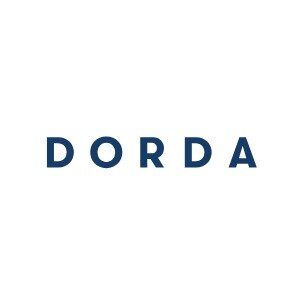Best White Collar Crime Lawyers in Vienna
Share your needs with us, get contacted by law firms.
Free. Takes 2 min.
List of the best lawyers in Vienna, Austria
About White Collar Crime Law in Vienna, Austria
White collar crime in Vienna, Austria, encompasses various non-violent crimes typically committed by individuals, professionals, or corporate entities for financial gain. These crimes may include fraud, embezzlement, insider trading, money laundering, and bribery. The legal framework in Vienna is designed to punish, prevent, and deter such acts through stringent laws and enforcement by specialized authorities.
Why You May Need a Lawyer
If you find yourself accused of or involved in a white collar crime, the complexities of legal procedures and the potential consequences necessitate professional legal assistance. Here are some common situations where a lawyer's expertise would be invaluable: - Charges or investigations related to fraudulent activities. - Allegations of embezzlement or financial mismanagement. - Accusations of bribery or corruption. - Involvement in securities fraud or insider trading. - Facing criminal investigations or audits by regulatory bodies. - Negotiating settlements or plea bargains with authorities. - Seeking defense against asset forfeiture or freezing of accounts.
Local Laws Overview
The Austrian Criminal Code (Strafgesetzbuch, StGB) includes various provisions pertinent to white collar crimes. Key aspects include: - Fraud (StGB § 146-148): Encompasses deceitful practices to gain a financial advantage, punishable by imprisonment or fines. - Embezzlement (StGB § 133): Involves the unlawful appropriation of assets by someone entrusted with them. - Money Laundering (StGB § 165): Includes concealing the origins of illegally obtained money, which is severely penalized. - Anti-Corruption (StGB § 304-309): Covers bribery and related offenses, focusing on maintaining public and corporate integrity. - Corporate Criminal Liability (Verbandsverantwortlichkeitsgesetz, VbVG): Applies to legal entities and outlines the conditions under which corporations can be held accountable for criminal acts.
Frequently Asked Questions
1. What constitutes white collar crime in Vienna?
White collar crime refers to financially motivated, non-violent crimes committed by individuals, companies, or government officials. Examples include fraud, embezzlement, and money laundering.
2. Can a corporation be held liable for white collar crimes in Austria?
Yes, under the Austrian Corporate Criminal Liability Act (VbVG), corporations can be held accountable for criminal acts committed by their employees, particularly if the actions benefited the corporation.
3. What penalties can be imposed for white collar crimes?
Penalties vary depending on the nature and severity of the crime but typically include fines, imprisonment, or both. The court may also order restitution to the victims.
4. Is there a statute of limitations for white collar crimes?
Yes, the statute of limitations varies based on the specific crime but generally ranges from five to ten years. Certain severe crimes might have longer limitation periods.
5. What should I do if I am under investigation for a white collar crime?
Immediately seek legal counsel to understand your rights and prepare a defense strategy. Avoid making any statements to investigators without your lawyer present.
6. How can I find a specialized white collar crime lawyer in Vienna?
Look for lawyers or law firms with a strong track record in criminal defense, particularly those specializing in financial or corporate crime. Bar associations and legal directories can offer recommendations.
7. Can legal advice help in preventing white collar crimes?
Yes, preventive legal guidance can help individuals and corporations establish compliance programs, internal controls, and ethical guidelines to mitigate the risk of wrongdoing.
8. What role do regulatory bodies play in white collar crime enforcement?
Regulatory bodies like the Austrian Financial Market Authority (FMA) and the Austrian Federal Ministry of Finance enforce compliance and investigate allegations of financial misconduct.
9. Are whistleblowers protected under Austrian law?
Yes, Austria provides legal protections for whistleblowers who report illegal activities within their organizations, safeguarding them from retaliation.
10. How long does the legal process take for white collar crime cases?
The duration varies widely based on the complexity of the case, the evidence available, and whether the case goes to trial. It can range from several months to years.
Additional Resources
Those seeking further information or assistance with white collar crime matters can turn to the following resources: - Austrian Bar Association (Österreichischer Rechtsanwaltskammertag) - Austrian Financial Market Authority (Finanzmarktaufsicht, FMA) - Austrian Federal Ministry of Finance (Bundesministerium für Finanzen) - Austrian Federal Criminal Police Office (Bundeskriminalamt, BK) - Anti-Corruption Hotline operated by the Federal Bureau of Anti-Corruption (Bundesamt zur Korruptionsprävention und Korruptionsbekämpfung)
Next Steps
If you require legal assistance in a white collar crime matter: 1. Contact a specialized white collar crime lawyer to discuss your situation. 2. Gather all relevant documents, communications, and records pertaining to the case. 3. Prepare a clear and factual account of events for your lawyer. 4. Refrain from making public statements or discussing the case with unauthorized parties. 5. Follow your lawyer's advice and remain cooperative with legal and regulatory authorities.
Lawzana helps you find the best lawyers and law firms in Vienna through a curated and pre-screened list of qualified legal professionals. Our platform offers rankings and detailed profiles of attorneys and law firms, allowing you to compare based on practice areas, including White Collar Crime, experience, and client feedback.
Each profile includes a description of the firm's areas of practice, client reviews, team members and partners, year of establishment, spoken languages, office locations, contact information, social media presence, and any published articles or resources. Most firms on our platform speak English and are experienced in both local and international legal matters.
Get a quote from top-rated law firms in Vienna, Austria — quickly, securely, and without unnecessary hassle.
Disclaimer:
The information provided on this page is for general informational purposes only and does not constitute legal advice. While we strive to ensure the accuracy and relevance of the content, legal information may change over time, and interpretations of the law can vary. You should always consult with a qualified legal professional for advice specific to your situation.
We disclaim all liability for actions taken or not taken based on the content of this page. If you believe any information is incorrect or outdated, please contact us, and we will review and update it where appropriate.














